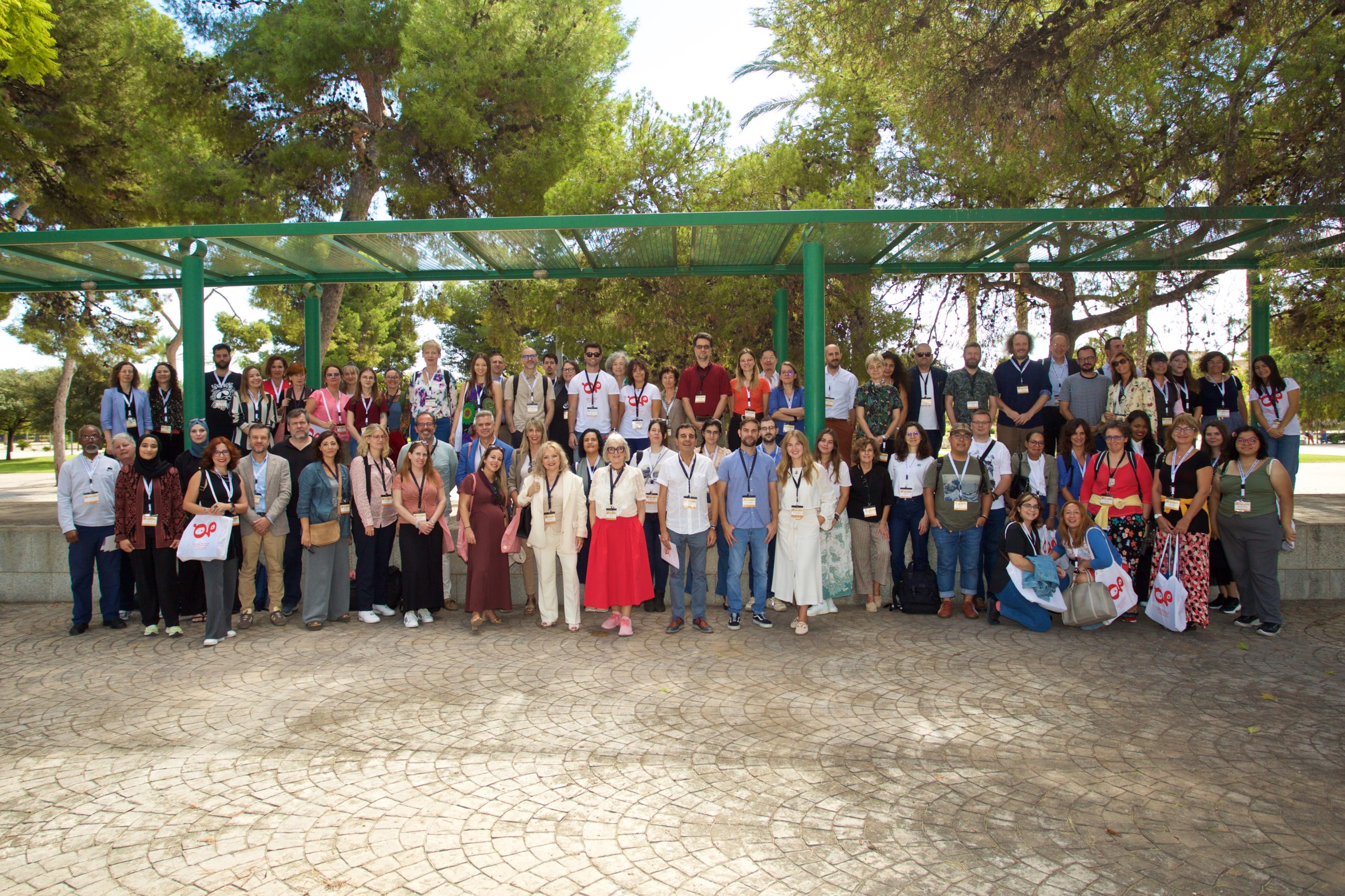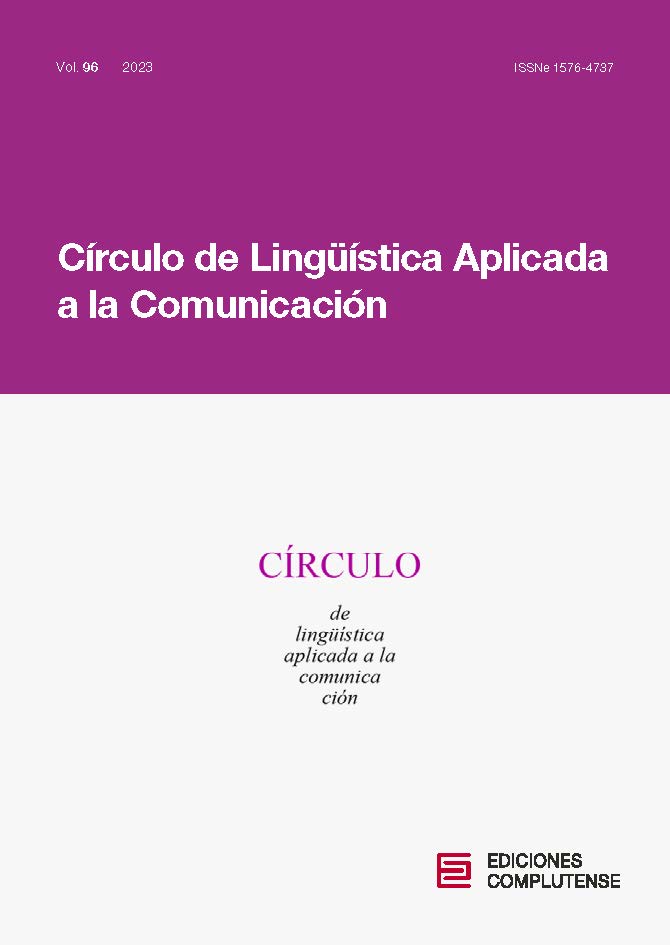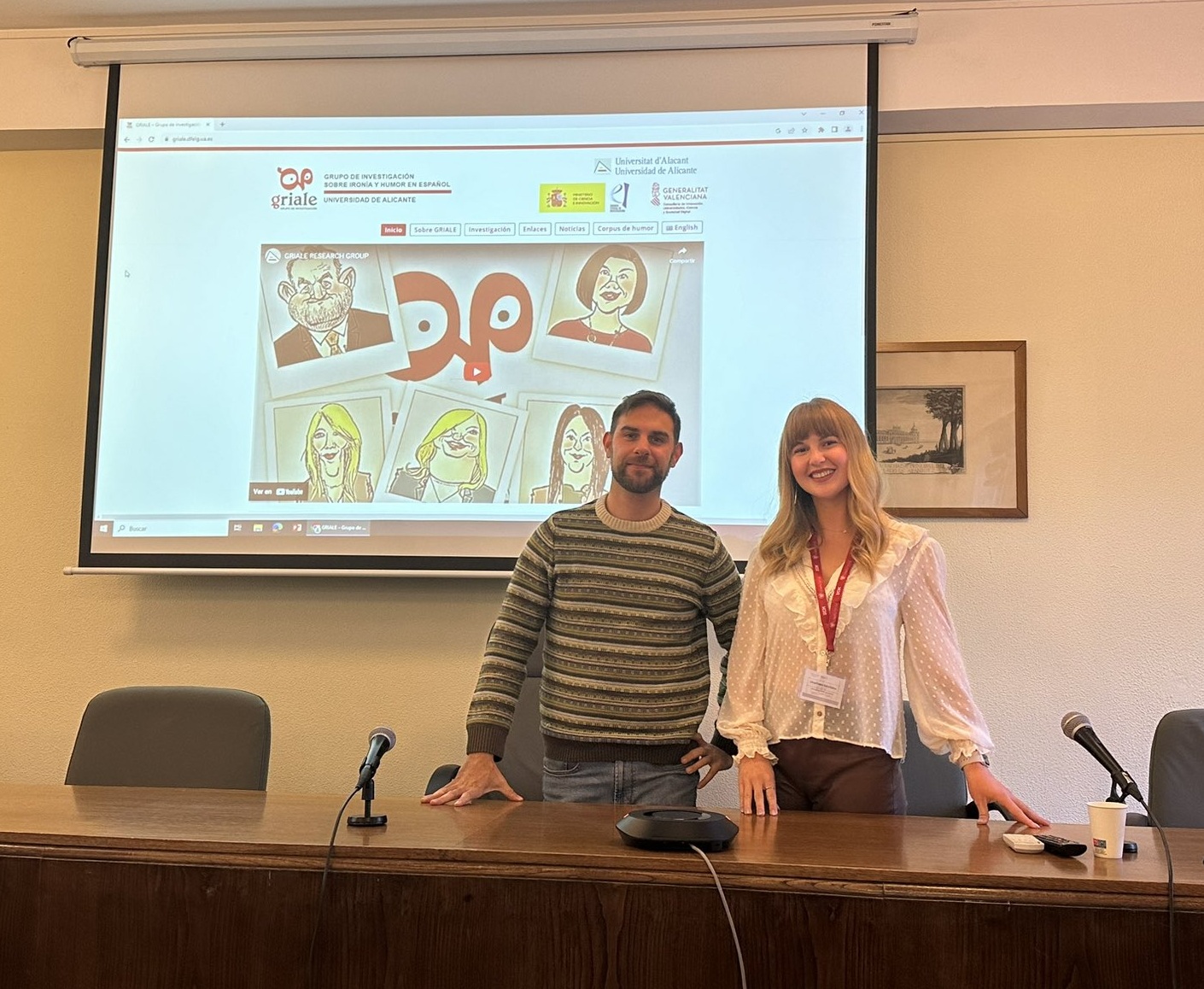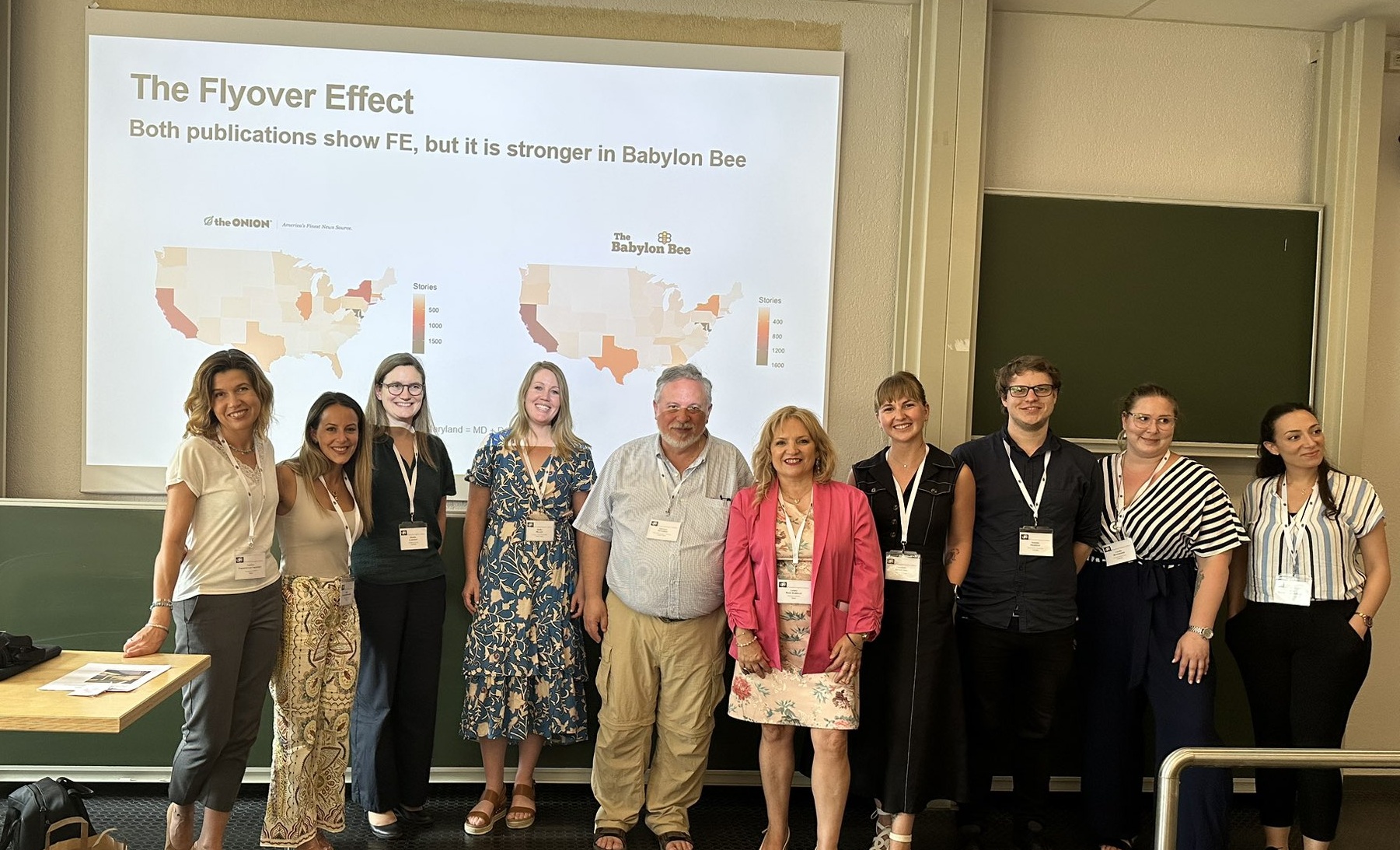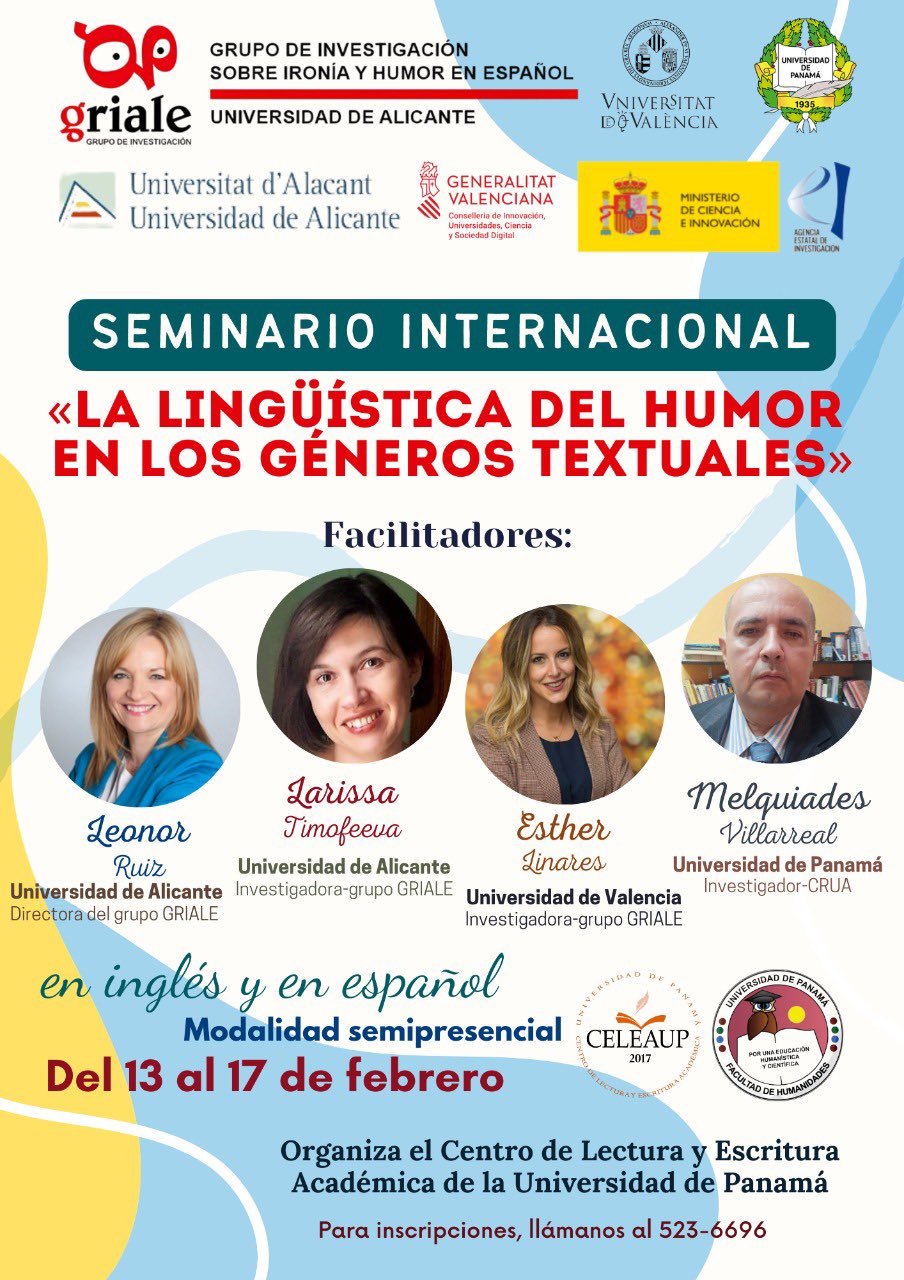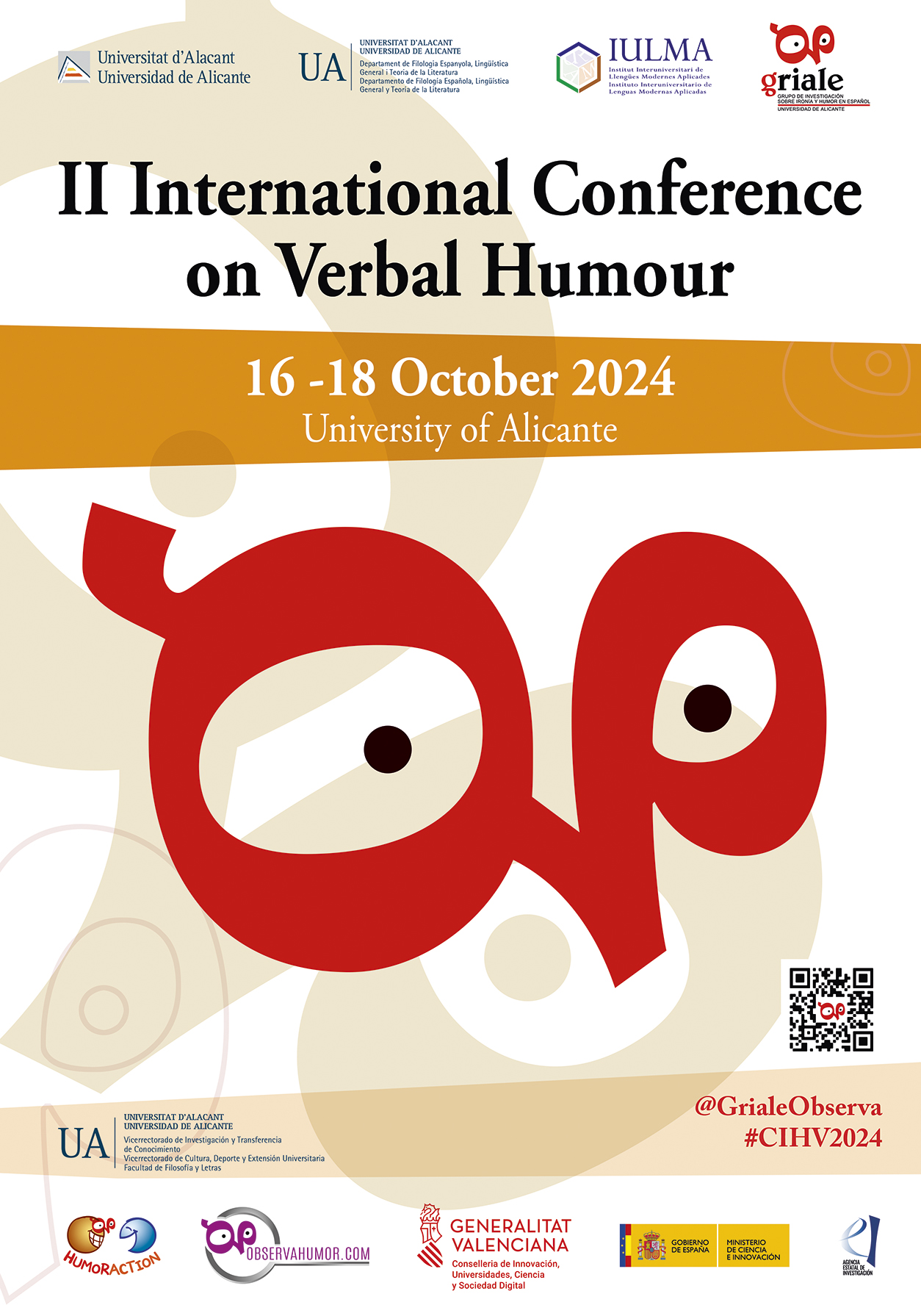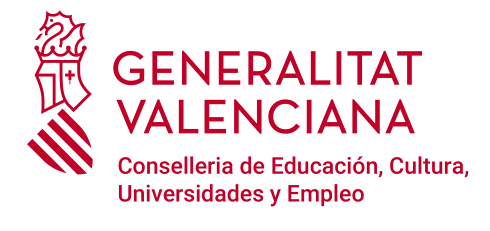II International Conference on Verbal Humour at the University of Alicante
The second edition of the International Conference on Verbal Humour (griale.dfelg.ua.es/cihv2024) concluded on October 18, 2024, held at the Faculty of Philosophy and Arts at the University of Alicante from October 16-18. Organized by the Research Group on Irony and Humour in Spanish (GRIALE) and led by Dr. Leonor Ruiz Gurillo and Dr. Esther Linares Bernabéu, the conference brought together over 100 humour linguistics experts from around 20 countries. During three days of presentations, specialists presented and discussed the latest advancements, proposals, and methodologies in verbal humour linguistics research.
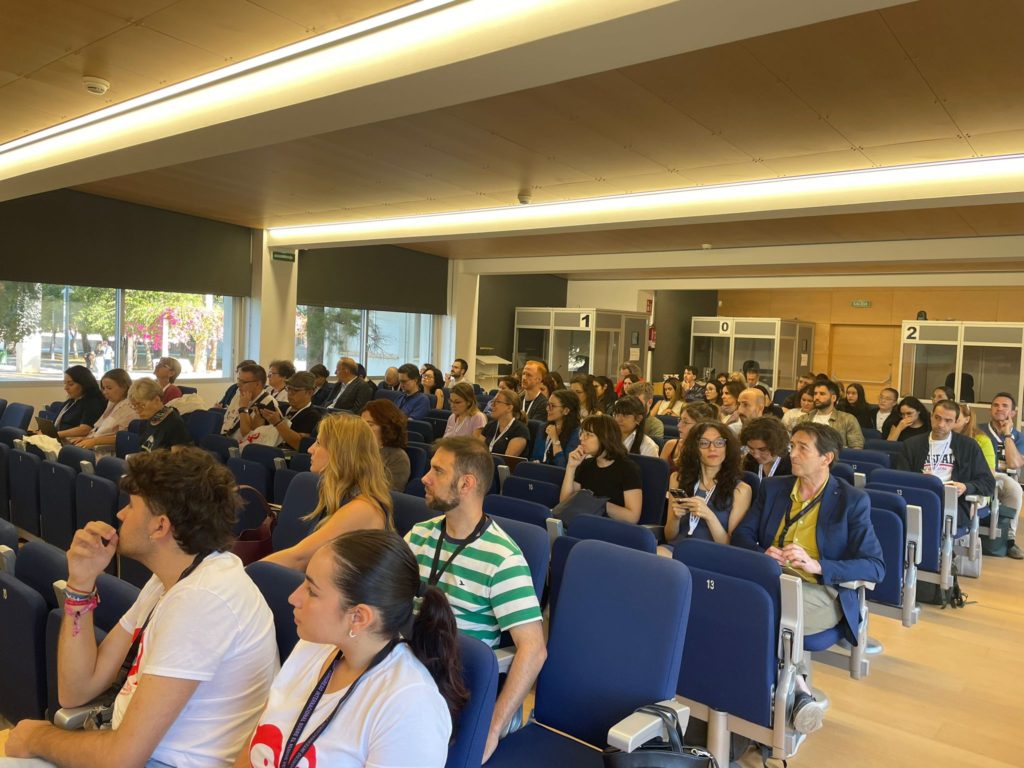
High-Level Presentations and Lectures
The conference program included keynote lectures by renowned humour experts such as Geert Brône from the Catholic University of Leuven in Belgium, who spoke on “Humour and Embodied Stance in Interaction”; Béatrice Priego-Valverde from Aix-Marseille University in France, discussing “The Role of Smile in Negotiating Failed Conversational Humour”; and Jan Chovanec from Masaryk University in the Czech Republic, covering “Digital Humour as a Form of Grassroots Political Commentary.” Other leading figures in verbal humour studies, such as Delia Chiaro from the University of Bologna and Helga Kotthoff from the Albert-Ludwigs University of Freiburg, also participated.
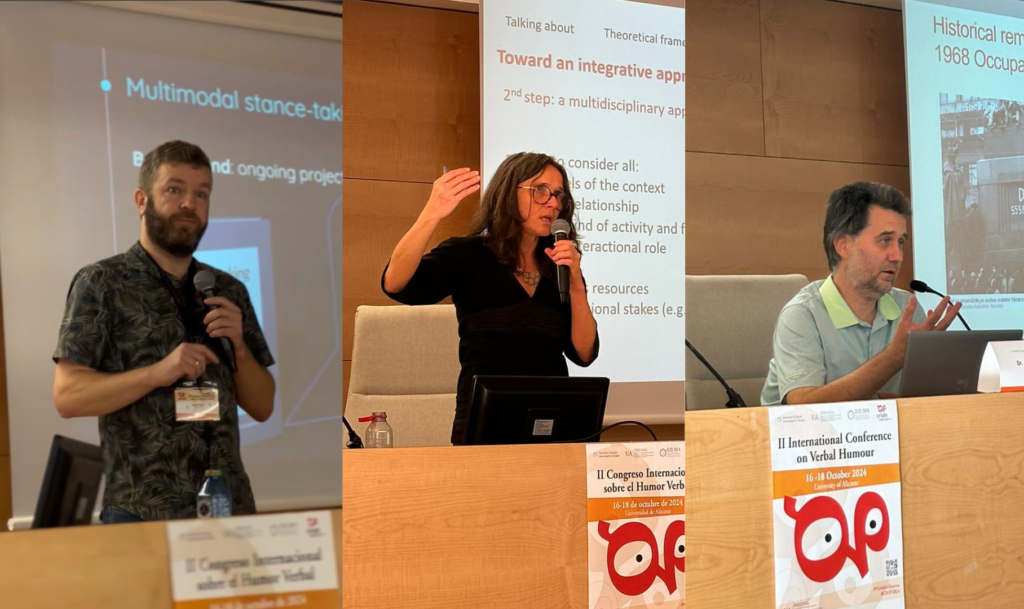
The presentations were organized into panels on topics like “Humour, Multimodality, and Digital Discourses,” “Humour, Language Acquisition, and Teaching,” “Humour and Text Genres,” “Humour and Linguistic Corpora,” “Humour and Interaction,” and “Humour and (Im)politeness.” The program can be consulted here: https://griale.dfelg.ua.es/cihv2024/wp-content/uploads/2024/10/Programa-Programme.pdf
Cultural Performance by Patricia Espejo
On October 16, comedian Patricia Espejo performed at the University of Alicante’s Paraninfo theater, closing the first day of the conference with a show full of absurd humour and outrageous scenarios that delighted attendees, providing a perfect balance to the academic aspects of the conference.
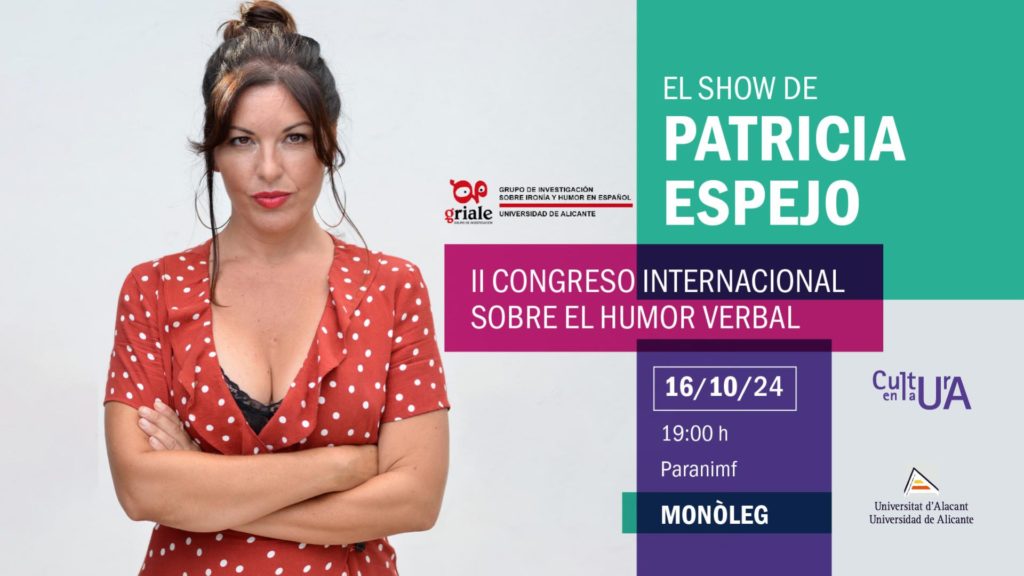
GRIALE Group as a Leader in Humour Research
This event, organized by the Research Group on Irony and Humour in Spanish (GRIALE) and the Instituto Interuniversitario de Lenguas Modernas Aplicadas (IULMA), was supported by the Vicerrectorado de Investigación and the Vicerrectorado de Cultura, Deporte y Extensión Universitaria at the University of Alicante. It also had the collaboration of the Facultad de Filosofía y Letras, the Departamento de Filología Española, Lingüística General y Teoría de la Literatura, and the Instituto Universitario de Investigación de Estudios de Género (IUIEG). Additional support came from the Ayuntamiento de Xixona, the Sede Universitaria de Xixona, Turisme de la Comunitat Valenciana and the Carmencita company.
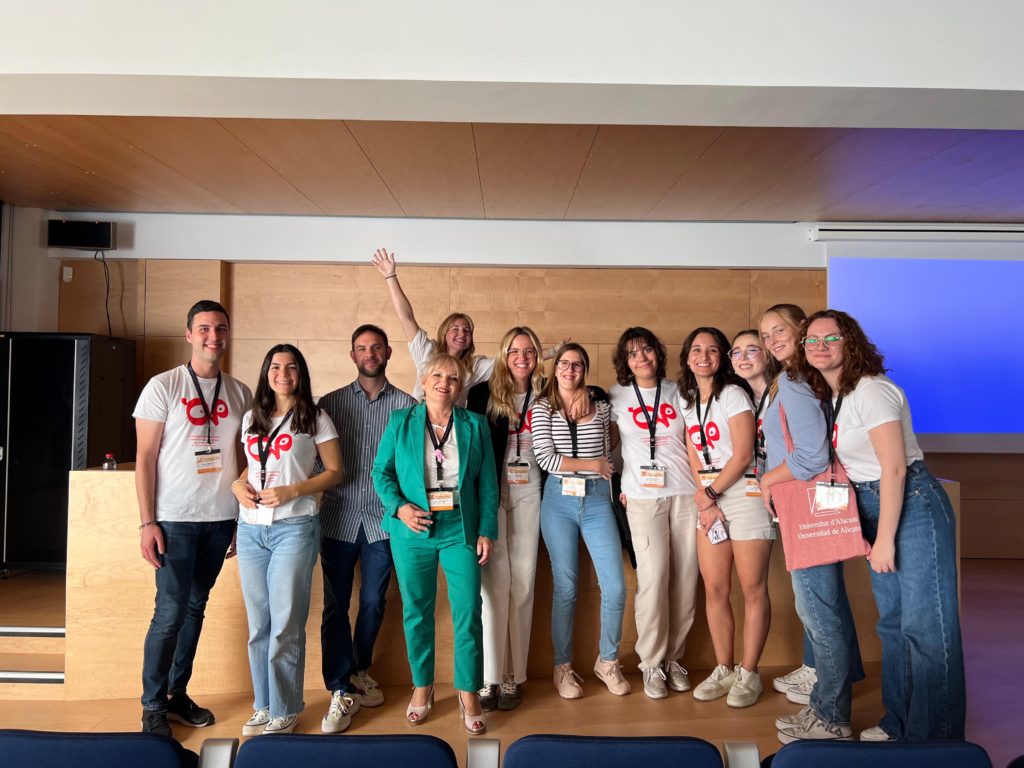
The conference also marked the closing of projects PROMETEO/2021/079: “Etiquetaje pragmático para un observatorio de la identidad de mujeres y hombres a través del humor. La plataforma Observahumor.com” (Generalitat Valenciana) and PID2019-104980GB-I00 “El humor interaccional en español. Géneros orales, escritos y tecnológicos” (HUMORACTION) (MICIU/AEI//10.13039/501100011033), both led by Dr. Leonor Ruiz Gurillo. These projects, undertaken by GRIALE, focus on the study of irony and verbal humour in Spanish. The conference provided an opportunity for GRIALE members to showcase their cutting-edge humour research, especially advancements related to the corpora in the OBSERVAHUMOR.COM platform.
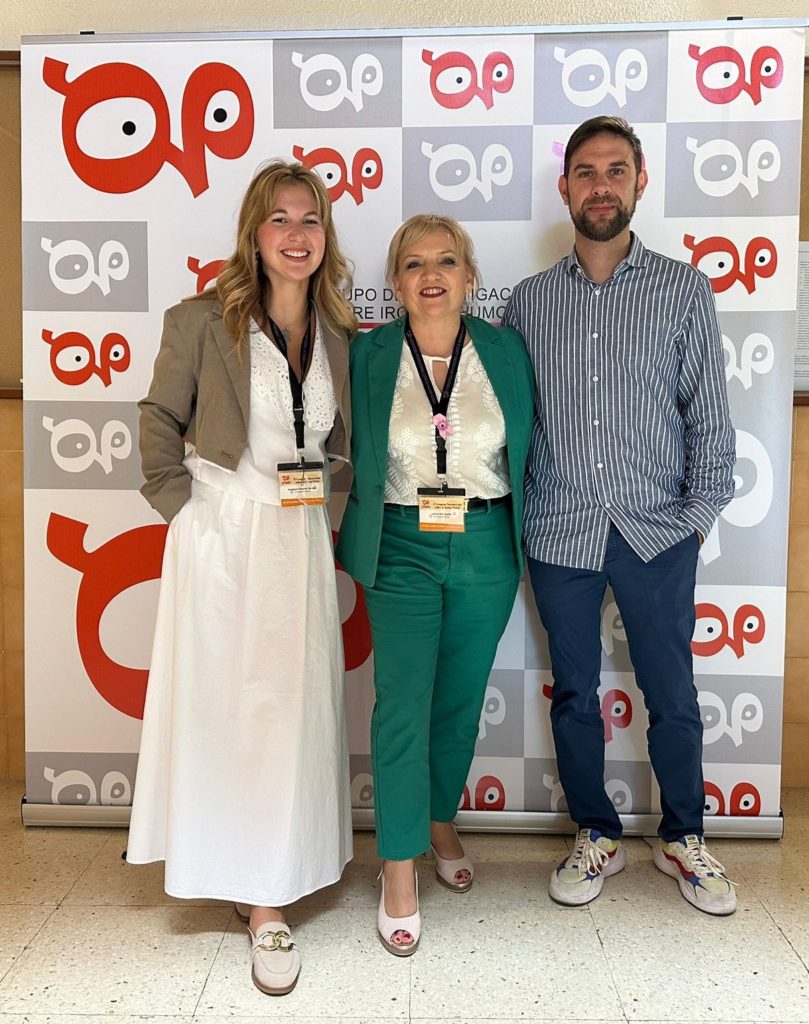
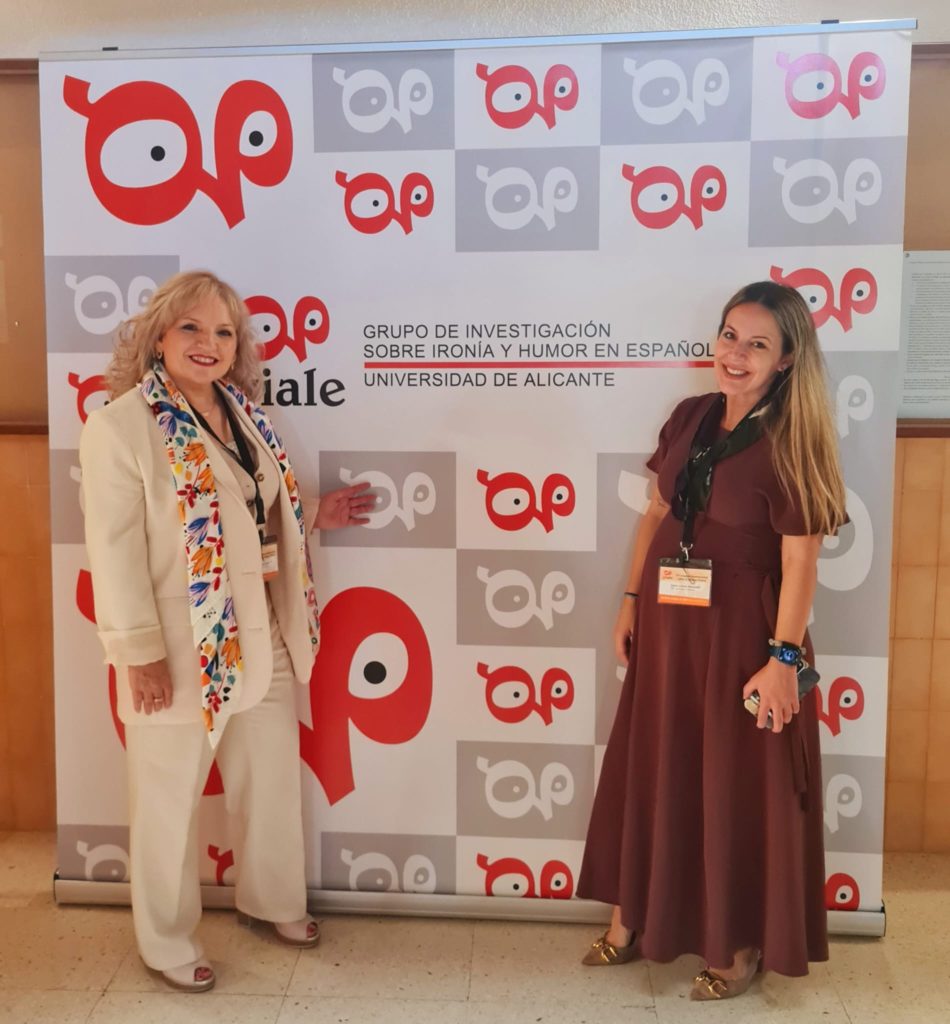
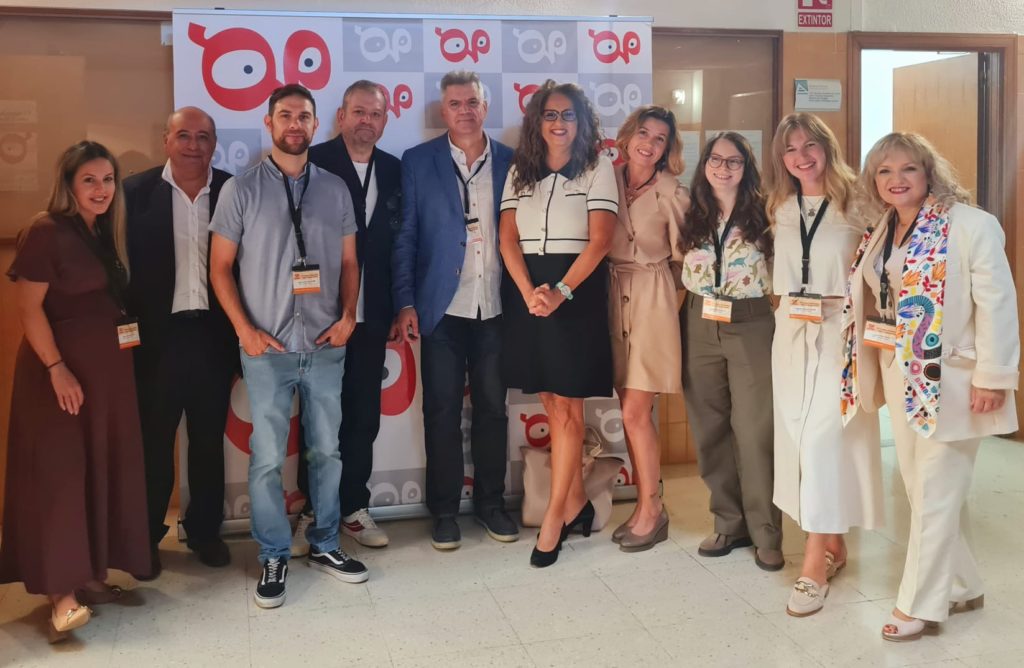
The warm reception, the quality of the research presented, and the high level of scholarly discussions at the II CIHV reinforce GRIALE’s position as a premier leader in verbal humour research.
To stay updated on future events or other news about our group, feel free to follow us on social media:
Facebook: https://www.facebook.com/GrialeObserva
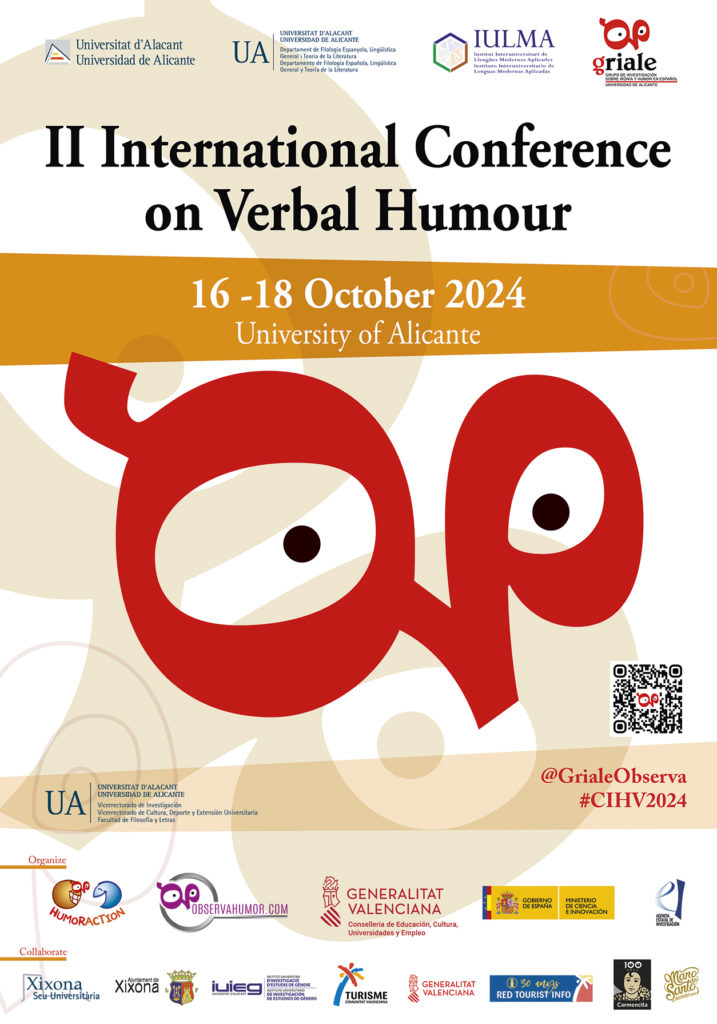
Publication in CLAC Journal
Continuing with the PROMETEO/2021/079 project, Professor José Joaquín Martínez Egido has managed and coordinated a monograph for the CLAC journal that fully addresses the project’s work, with the participation of almost all members of the research team. The monograph, titled “Pragmatic Labeling of Humorous Discourses on the OBSERVAHUMOR.COM Platform,” accessible through https://revistas.ucm.es/index.php/clac, features research from the PROMETEO 2019/079 members as follows:
Leonor Ruiz Gurillo: “The Pragmatics of Pragmatic Labeling for the OBSERVAHUMOR.COM Platform.”
Working with a pragmatic phenomenon like humor, dependent on the discursive genre in which it appears and the conversational contract established between the speaker-writer and the listener-reader (Ruiz Gurillo, 2016), is a complex task. This article presents the need for pragmatic labeling to be applied to a humor corpus, specifically the OBSERVAHUMOR.COM platform. The review of different humorous marks and indicators acting in various humor corpora forms the basis for proposing a pragmatic labeling illustrated with the different corpora on the platform: CHILDHUM, VALESCO.HUMOR, ERASMUS.HUMOR, COLUMNAS.HUMOR, FEMMES.UP, and BLOGS.HUMOR.
Belén Alvarado and Anastasia Khaylina Tezikova: “Proposal for Pragmatic Labeling for a Conversational Corpus in Spanish.”
This work aims to offer an analysis and proposal for pragmatic labeling of the VALESCO.HUMOR corpus hosted on Observahumor.com. The GRIALE group has studied irony and humor in Spanish, creating a taxonomy of marks and indicators to discern ironic and humorous statements in collected corpora. This proposal provides all the necessary information for interpreting humorous sequences in the VALESCO.HUMOR corpus.
Juan Luis Jiménez Ruiz: “The Fields of Scatological Lexicon in Children’s Black Humor.”
This research aims to verify the inferential linguistic processes behind black or distasteful humor in children. Focusing on linguistic manifestations using scatological lexicon, this study analyzes expressions of black or distasteful humor employed by children aged 8 to 12.
Larissa Timofeeva Timofeev and José Antonio Ortega Gilabert: “Pragmatic Labeling Keys in the CHILDHUM Corpus.”
Within the GRIALE group’s research, recent work involves analyzing verbal humor in children. The CHILDHUM corpus, under construction, includes pragmatic labeling of samples for three age groups, applying humor marks and indicators as linguistic supports for comedic creation.
Chelo Vargas Sierra: “Emotional Analysis of the COLUMNAS.HUMOR Corpus: A Mixed Approach.”
This study analyzes the COLUMNAS.HUMOR corpus, observing predominant polarity and emotions. Employing a corpus-based methodology with quantitative and qualitative techniques, the study aims to interpret emotional data in each corpus of study.
José Joaquín Martínez Egido: “Pragmatic Labeling of a Corpus of Economic and Financial Blogs in Spanish.”
The economic and financial blog genre allows for economic discourse in Spanish, often incorporating verbal humor as a discursive strategy. This work prepares and labels texts from economic and financial blogs according to GRIALE’s guidelines, making them available on the OBSERVAHUMOR.COM platform. The achieved result includes the creation of a labeled corpus from two blogs, selecting 100 humorous sequences and providing a typology of these sequences.
XXXVII International Congress of the Association of Young Linguists
On November 6, 7, and 8, 2023, the Faculty of Philology at the Complutense University of Madrid was the epicenter of the XXXVII International Congress of the Association of Young Linguists. In this prominent event, the fellows of the PROMETEO Project 2021/079, Anastasia Khaylina Tezikova, and Jose Antonio Ortega Gilabert, presented results obtained through the rigorous task of pragmatic labeling within the research project.
Anastasia Khaylina Tezikova: “Aggressive Humor Style on the OBSERVAHUMOR.COM Platform”
Anastasia Khaylina’s presentation, titled “Aggressive Humor Style on the OBSERVAHUMOR.COM Platform,” delves into the world of personality psychology and its relationship with humor. The work focuses on linguistically classifying the aggressive humor style, identifying humorous marks and indicators in the VALESCO.HUMOR corpus.
Jose Antonio Ortega Gilabert: “Artificial Intelligence and Humor: A Pragmatic Perspective”
On the other hand, Jose Antonio Ortega Gilabert addresses the relationship between artificial intelligence and humor from a pragmatic perspective in his presentation titled “Artificial Intelligence and Humor: A Pragmatic Perspective.” The study is based on the analysis of the video “AI Wrote and Performed a Jerry Seinfeld Routine!” by Speaking of AI, where GPT-3 imitates Jerry Seinfeld’s style. The work focuses on unraveling the pragmatic strategies used by artificial intelligence in creating humorous discourse. Based on pragmatic labeling according to humor marks and indicators, the analysis aims to shed light on how artificial intelligence, specifically GPT-3, employs various linguistic mechanisms to maintain audience attention.
Organization of the panel “Shaping Humour in Interaction” at IPRA 2023
The 18th edition of the International Pragmatics Congress (IPrA) took place in Brussels, Belgium, from July 9 to 14, 2023, at the Free University of Brussels (ULB). The panel “Shaping Humour in Interaction,” chaired by Dr. Leonor Ruiz Gurillo and Dr. Esther Linares Bernabéu, featured 12 presentations spread across 4 sessions on Monday, July 10.
Panel Summary:
Humor is a multifaceted phenomenon based on human attributes such as perception, cognition, and emotions. It is a daily reality that occurs in various contexts, capturing the interest of scholars from diverse disciplines. Studies on humor have been conducted in fields as varied as linguistics, sociology, psychology, education, or medicine, to name a few.
There is a growing interest in humorous discourse from a linguistic and interactive perspective, yielding fascinating results (see Norrick and Chiaro, 2009; Chovanec and Tsakona, 2018; Yus, 2018; Mullan and Béal, 2018; Haugh and Weinglass, 2018; Sinkeviciute, 2019; Attardo, 2020; Mullan et al., 2020; Chang and Haugh, 2020; Ruiz-Gurillo, 2021; Gironzetti, 2022). This panel focuses on the role of humor in different interactive settings. Contributions will analyze humor from a pragmatic approach by examining different interactive genres, showing that humor is an intrinsically human phenomenon based on ambiguity that transcends various lines and borders, including gender, age, or ethnicity.
By focusing on the form of humor in interaction, various types of genres can be distinguished, considering humorous realizations (Tsakona, 2017). For example, there are communicative contexts where humor is expected (such as jokes, stand-up comedy, memes), and participants are in a humorous mode. Similarly, there are other situations where humor acts as a discursive strategy (such as conversations, WhatsApp, Twitter), and interlocutors sustain and co-construct humor over multiple turns, both in online and offline environments. Finally, it is also interesting to analyze how humor is negotiated in genres where comedy is not expected (such as blogs, online forums).
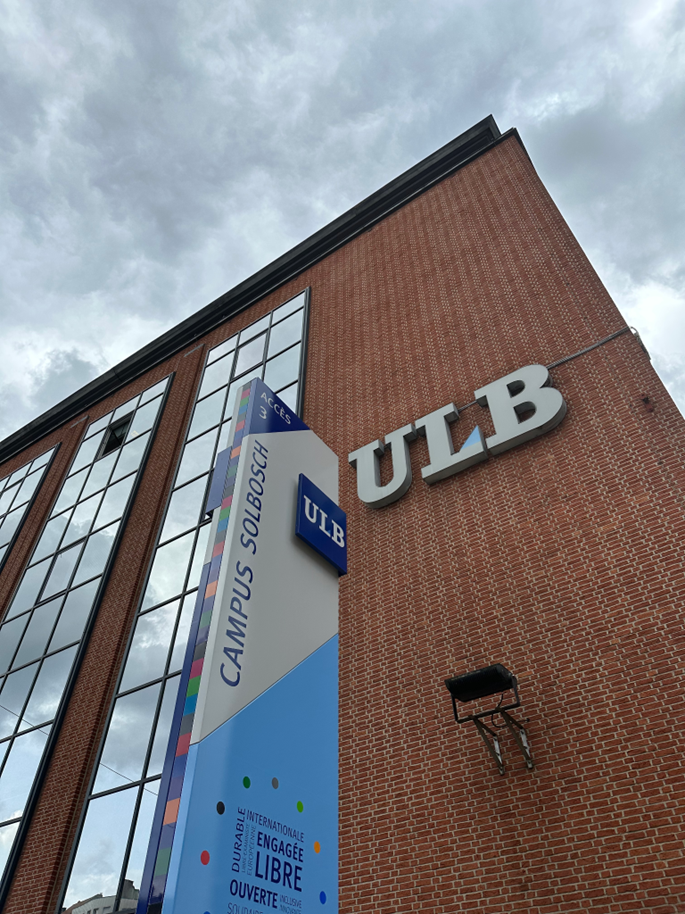
International seminar on humor linguistics at the University of Panama
From February 13 to 17, 2023, prominent linguists and members of the GRIALE Group, Dr. Leonor Ruiz Gurillo, Dr. Esther Linares Bernabéu, and Dr. Larissa Timofeeva Timofeev, participated in the International Seminar “Linguistics of Humor in Textual Genres” at the University of Panama.
Directed by Dr. Leonor Ruiz Gurillo, holding the position of director in the GRIALE Group, this event highlighted the influence and expertise of the group in the field of linguistic humor. The experts provided valuable insights into how humor manifests in different textual genres. Their participation not only enriched the seminar but also reinforced the importance of academic collaboration and the expansion of knowledge in this fascinating field of study.
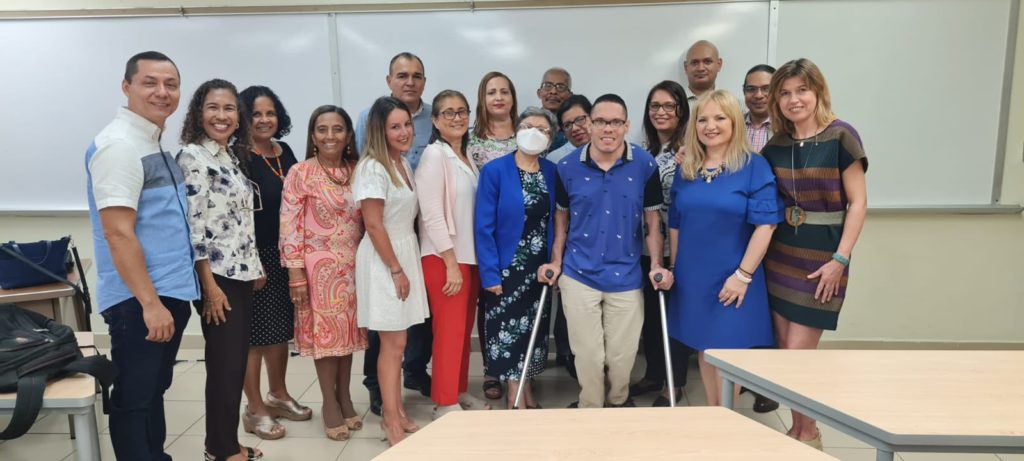
II International Conference on Verbal Humour (#CIHV2024)
We enthusiastically announce the II International Congress on Verbal Humour (#CIHV2024), an event organized by GRIALE and supported by the #HUMORACTION and #OBSERVAHUMOR.COM research projects. This conference promises to be a milestone in the study of verbal humour and will take place from October 16 to 18, 2024 at the University of Alicante, Spain.
GRIALE (https://griale.dfelg.ua.es/), national leader in the analysis of irony and verbal humour, heads this event that will bring together high-caliber international researchers. It is a unique opportunity to explore humour from various perspectives.
Featured speakers at #CIHV2024 include Jan Chovanec, Béatrice Priego-Valverde, Geert Brône, Jef Verschueren, Delia Chiaro and Helga Kotthoff.
We inform you that the call to participate in #CIHV2024 is now open. If you have fascinating research on humour, we want to hear from you. Submit your proposal on one of our panels through our form: https://forms.gle/NGaHbnt2dEXHhK3x5
This conference is not only an academic meeting, but a unique opportunity to consolidate research networks and foster new collaborations. For more information and to encourage you to participate as an attendee or speaker, visit: https://griale.dfelg.ua.es/cihv2024/.
We are waiting for you at #CIHV2024!
